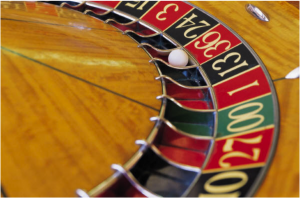Midlife Health: Go For Dark, Rich and Healthy!
 ‘Tis the season for CHOCOLATE! If you’re a fan, this is a great time to indulge because there are so many different chocolate treats being sold for the holidays. No need to feel guilty because in moderate amounts, chocolate actually has numerous health benefits.
‘Tis the season for CHOCOLATE! If you’re a fan, this is a great time to indulge because there are so many different chocolate treats being sold for the holidays. No need to feel guilty because in moderate amounts, chocolate actually has numerous health benefits.
One of its benefits is that it contains flavonoids which act as antioxidants and protect the body from aging. Flavonoids may also help reduce the cell damage that can promote tumor growth.
If you have high blood pressure you’ll be delighted to hear that researchers at the University of Cologne in Germany report that eating DARK chocolate can help lower blood pressure.
Chocolate also:
- Stimulates the production of endorphins which are the “feel-good” chemicals
- Contains serotonin which acts as an anti-depressant
- May decrease your risk of a stroke
- May be good for your heart – increased blood flow, mild anti-clotting effects, reduced plaque formation
To get the most benefit, stick with dark chocolate that contains at least 70% cocoa. It has many more antioxidants than milk or white chocolate. I’ve eaten chocolate that is 95% cocoa but that takes a little getting used to!
Don’t wash it down with a glass of milk though. A report from Italy’s National Institute for Food and Nutrition Research in Rome states that “milk may interfere with the absorption of antioxidants from chocolate … and may therefore negate the potential health benefits that can be derived from eating moderate amounts of dark chocolate.”
How much chocolate should you eat? You’ll be pleased to know that chocolate has a low glycemic index, meaning that it does not cause your blood sugar to spike. However, all things in moderation! About an ounce a day is fine. More than that and you will take in extra calories that you may not want.
If you’re looking for a great recipe, here is one compliments of www.freecoconutrecipes.com I made this recently and it’s delicious.
Frozen Chocolate Coconut Fudge
Preparation Time: 15 minutes
1 tablespoon vanilla extract
1/2 teaspoon salt
1 cup nut or seed butter (I used almond butter)
1/4 cup (generous) cocoa powder
1 cup shredded coconut
1/4 cup (generous) coconut oil, melted
1/4 cup raw honey
Mix together all ingredients. Pour on a piece of unbleached parchment paper on a cookie sheet. Spread out to about 1/4″ thick.
Place fudge in freezer. Let set for about 30 minutes.
Break into pieces and serve or put in container back in freezer until you are ready to serve.






